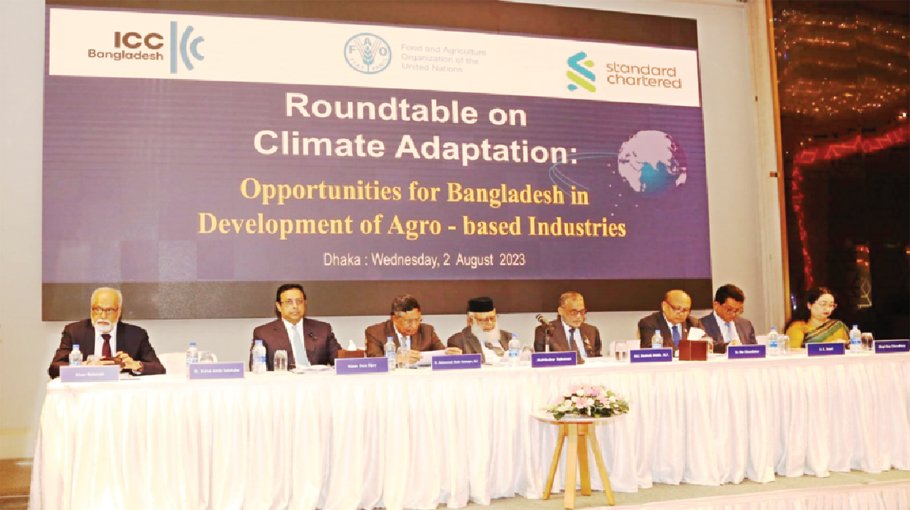‘Climate change threatens Bangladesh’s agriculture and economy, urgent investment needed’

Climate change’s detrimental impact on Bangladesh’s agriculture and overall economy has prompted urgent calls for action as the country’s annual GDP is projected to shrink by 1-2 percent due to its consequences. Addressing this critical issue, a roundtable event titled "Climate Adaptation: Opportunities for Bangladesh in Development of Agro-based Industries" was organized by the International Chamber of Commerce, Bangladesh (ICCB), UN’s Food and Agriculture Organisation (FAO), and Standard Chartered Bank.
During the event, notable speakers including ICCB President Mahbubur Rahman, Agriculture Minister Dr. Muhammad Abdur Razzaque, and Environment, Forest, and Climate Change Minister Md Shahab Uddin emphasized the need for a close collaboration between the private and public sectors to combat climate change's impacts and ensure future food security.
Dr. Razzaque, as the Chief Guest, highlighted the urgency of the situation, pointing out the potential inundation of vast areas by sea water in the coming decades. The National Adaptation Plan of Bangladesh 2023-2050 focuses on developing climate-sensitive agro food processing industries, and the promotion of mini-processing factories near production areas to empower smallholder farmers, foster local agrifood value chains, and reduce the global carbon footprint.
The use of digital technology throughout the agrifood value chain was emphasized as a means to enhance efficiency and enable crucial information and advisory services to farmers. Bangladesh's low contribution to global greenhouse gas emissions was acknowledged, but the country's vulnerability to climate change's adverse effects remains high.
Furthermore, the roundtable discussions stressed that without immediate action, Bangladesh faces significant annual GDP losses, the loss of arable land, disruptions to education, health issues due to salinity and waterlogging, and impacts on livelihoods. Hence, a strategic approach combining mitigation and adaptation efforts is essential, with emphasis on public-private partnerships to address the evolving challenges.
Environment Minister Shahab Uddin emphasized the importance of agroforestry in climate adaptation, which can promote biodiversity, enhance soil health, and reduce the impact of natural disasters. Achieving climate adaptation goals will require close collaboration among the private sector, civil society, and international development partners.
The FAO is actively supporting the Ministry of Agriculture in developing the sustainable agro-based industry, including agro processing, and a strategic roadmap has been drafted through stakeholder consultations.
A key aspect discussed during the event was the crucial need for investments amounting to US$1.2 billion by 2030, which could save up to US$11.6 billion by 2030 and US$59 billion by 2050 in GDP. To achieve this, close partnerships between the government, private sector, and capital markets are required.
In conclusion, the roundtable underscored the urgent need to address climate change impacts on Bangladesh's agriculture and economy through concerted efforts, investments, and collaborations to secure the country's future and promote sustainable growth in the agro-based industries.



